
Business
18:42, 30-Jan-2017
Trump travel ban stirs faint corporate outcry beyond Silicon Valley
Updated
10:38, 28-Jun-2018
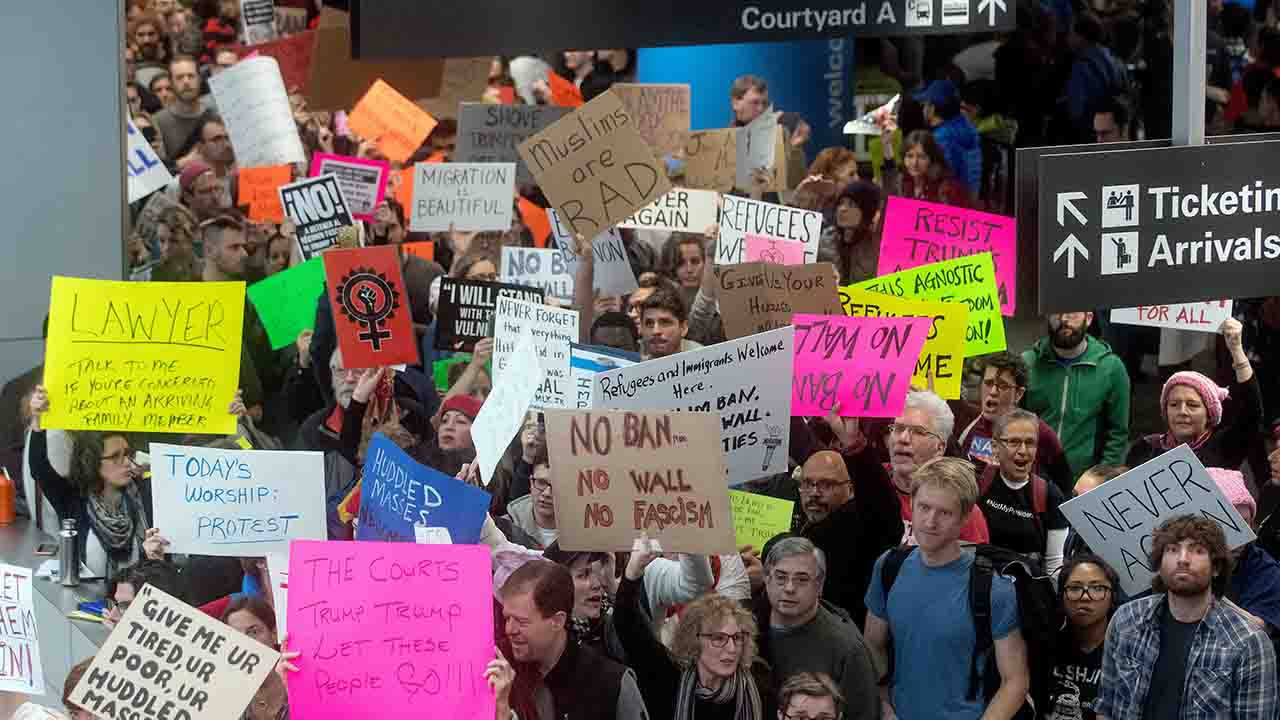
Many US corporate bosses have stayed silent on President Donald Trump's immigration curbs, underscoring the sensitivity around opposing policies that could provoke a backlash from the White House.
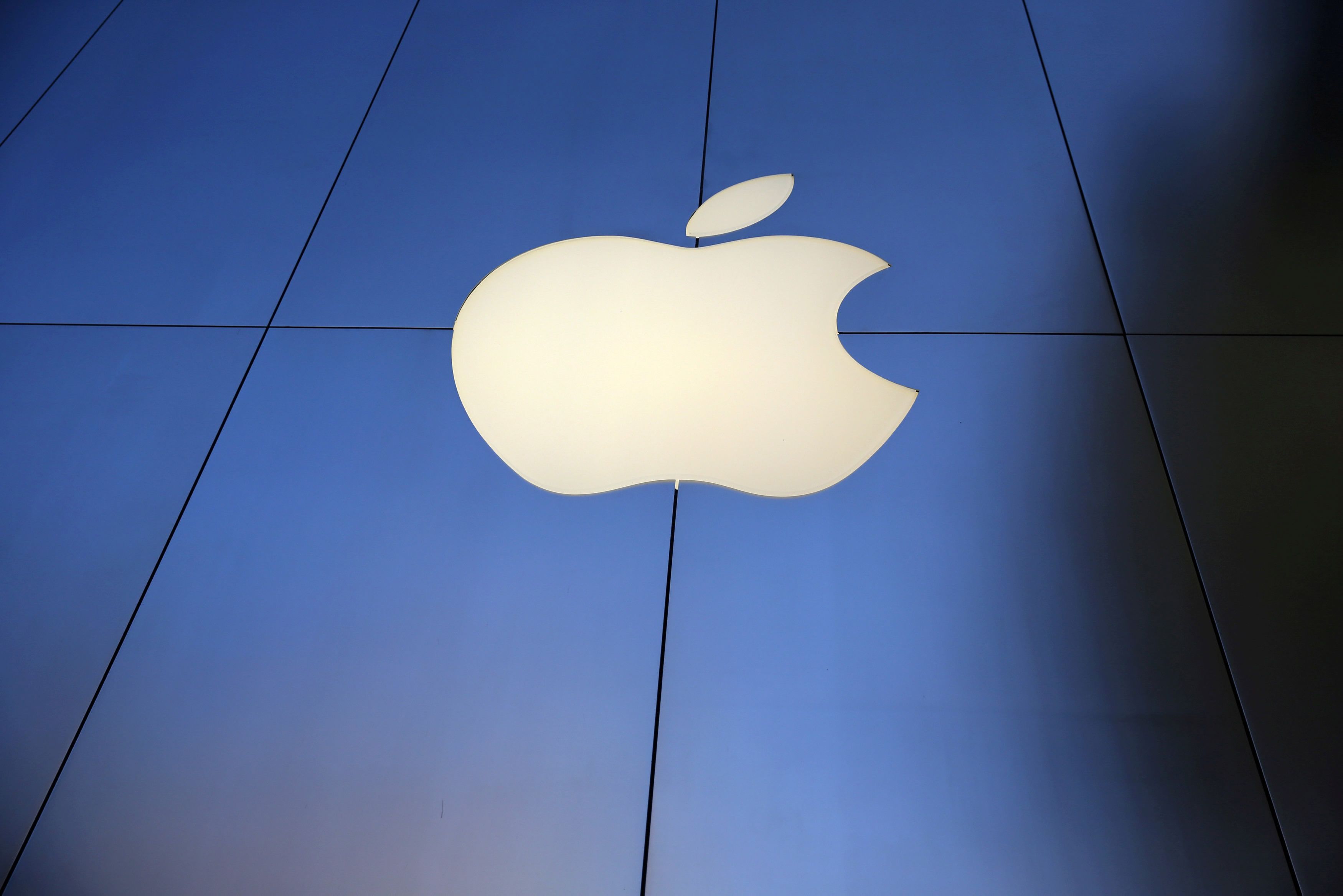
An Apple store in Los Angeles, California /CFP Photo
An Apple store in Los Angeles, California /CFP Photo
While the leaders of Apple Inc., Google, and Facebook Inc. emailed their staff to denounce the suspension of the US refugee program and the halting of arrivals from seven Muslim-majority countries, many of their counterparts in other industries either declined to comment or responded with company statements reiterating their commitment to diversity.
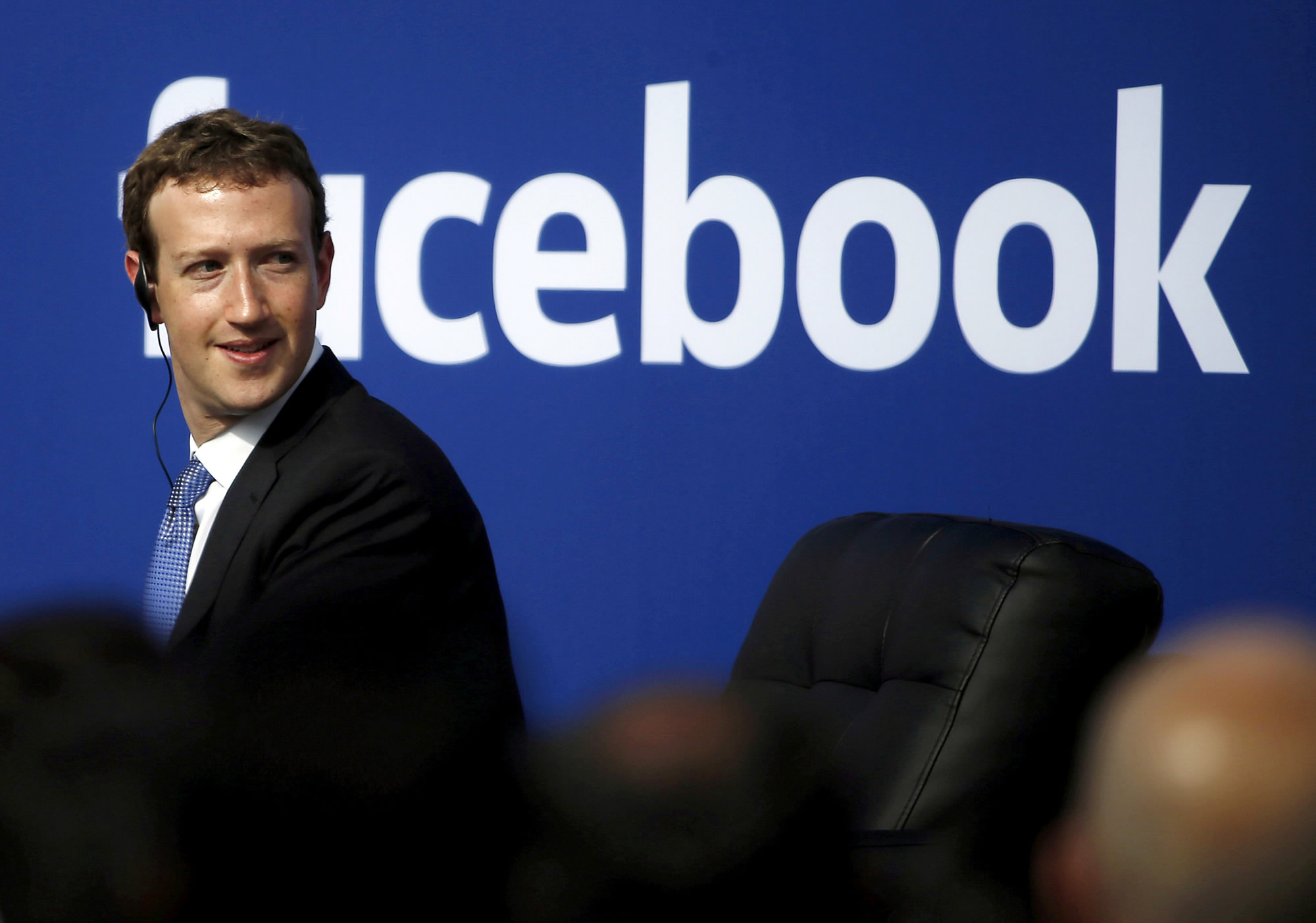
Facebook CEO Mark Zuckerberg /CFP Photo
Facebook CEO Mark Zuckerberg /CFP Photo
The difference in response shows the pressure large swathes of corporate America face in avoiding tussling publicly with the new administration.
Companies such as aircraft maker Boeing Co. and automakers Ford Motor Co. and General Motors Co. have already had run-ins with Trump over other issues, and they have much at stake in policy decisions that the administration will make on tax, trade, and regulatory matters.
Representatives from Boeing, General Motors, and Ford declined to comment on Trump's immigration curbs.
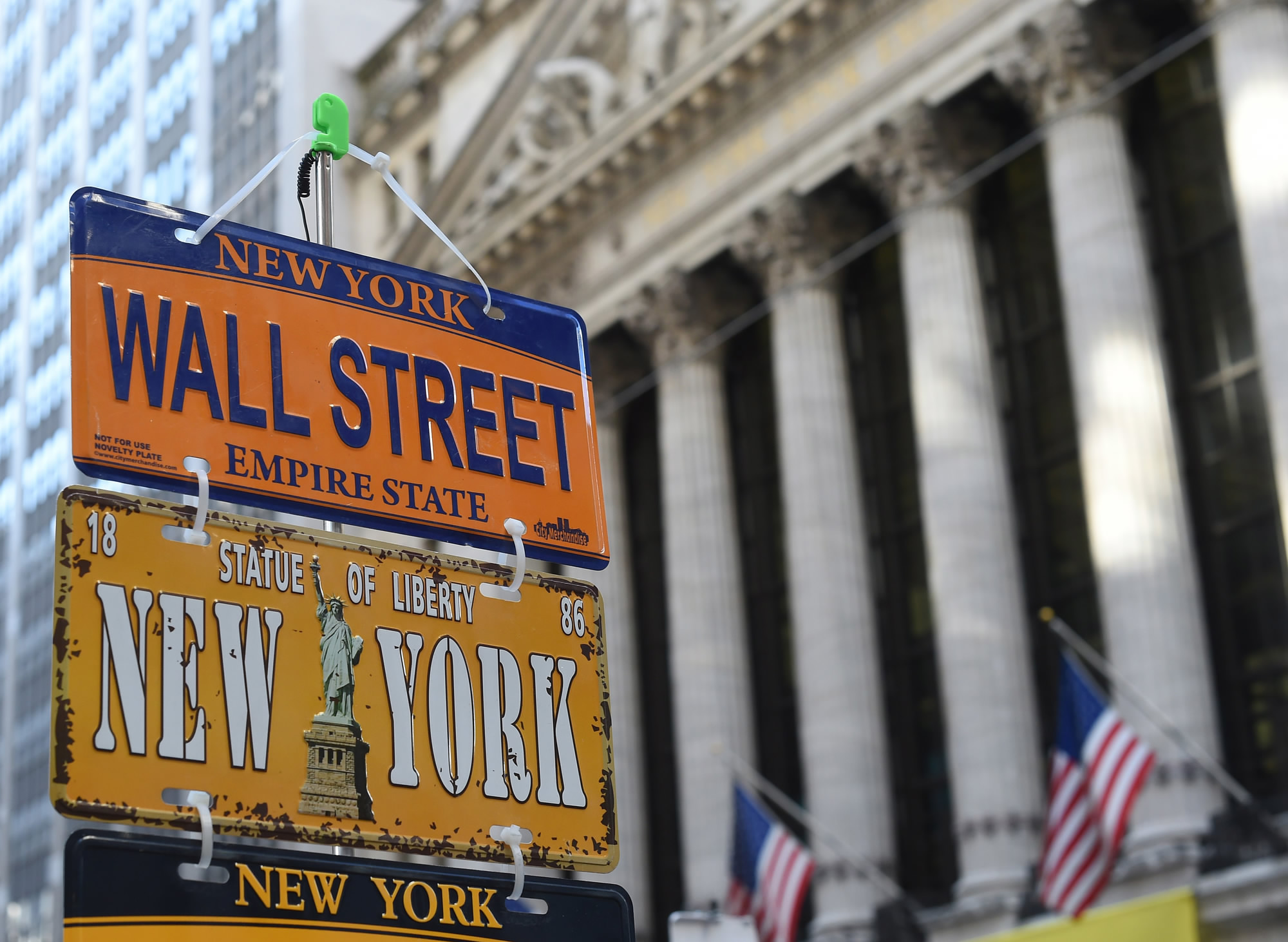
Picture shows New York Stock Exchange on Wall Street in New York, January 25, 2017. /CFP Photo
Picture shows New York Stock Exchange on Wall Street in New York, January 25, 2017. /CFP Photo
Wall Street, meanwhile, is hoping the new administration will ease some of the regulations introduced in the wake of the 2007-08 financial crisis and adopt a lighter touch in their enforcement.
Industries including banking, healthcare and auto manufacturing "see themselves on the cusp of a new era of deregulation, and they do not want to do anything that would offend the new emperor," said Cornelius Hurley, director of Boston University's Center for Finance, Law & Policy.
Trump had targeted both the tech industry and Wall Street during his presidential campaign, but once elected, he tapped former investment bankers, hedge fund managers, and private equity investors to join his administration.
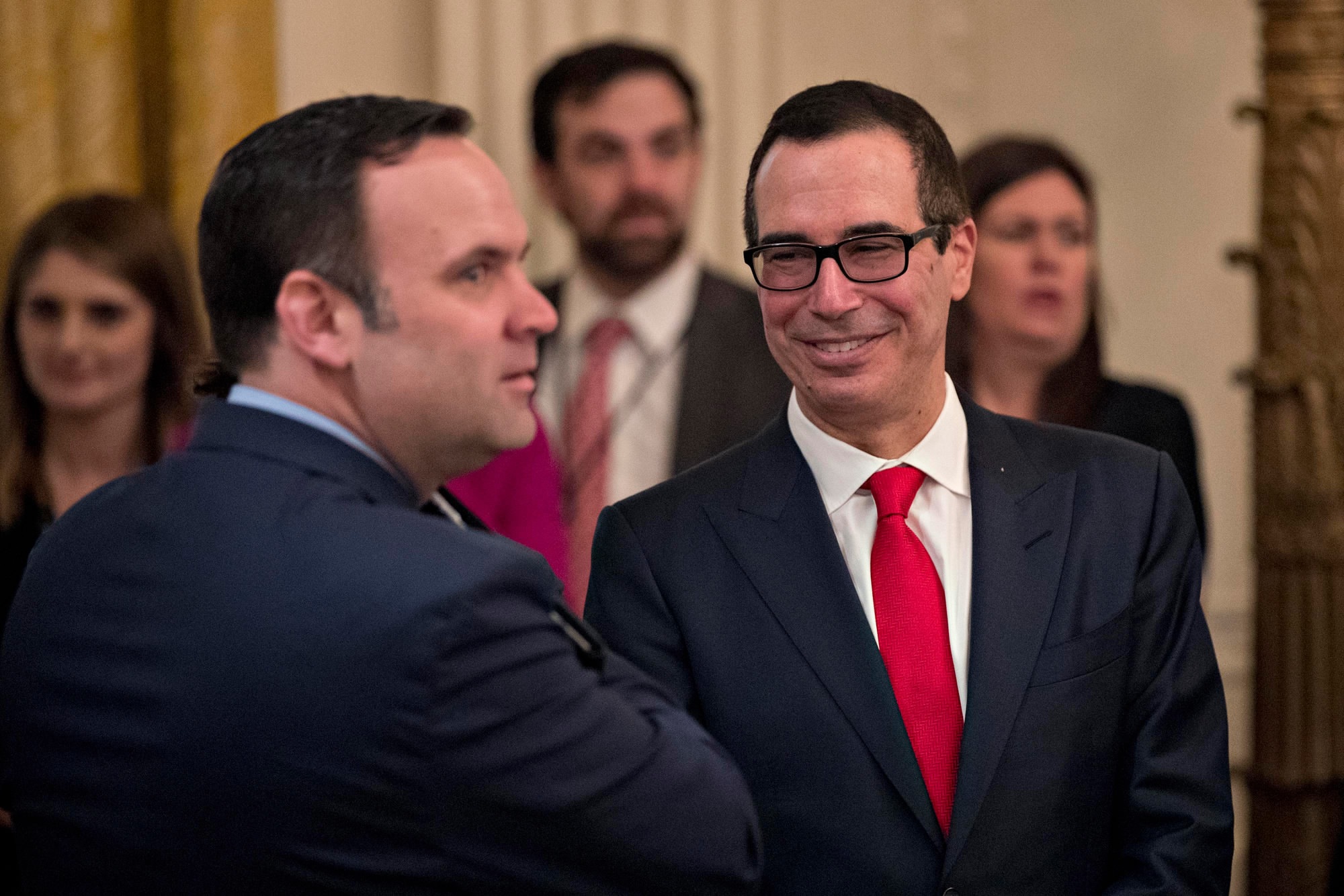
Picture shows Donald Trump's nominee to head the Treasury department, Steven Mnuchin. He is well versed in Wall Street from having worked as a partner for Goldman Sachs and co-founding hedge fund Dune Capital Management LP. /CFP Photo
Picture shows Donald Trump's nominee to head the Treasury department, Steven Mnuchin. He is well versed in Wall Street from having worked as a partner for Goldman Sachs and co-founding hedge fund Dune Capital Management LP. /CFP Photo
With friends in high places, Wall Street may have less reason to be as outspoken about the new restrictions.
"Bankers have direct access to this White House," said Erik Gordon, who teaches at the University of Michigan's Ross School of Business. "They don't have to protest publicly."
Representatives of Goldman Sachs Group Inc., Citigroup Inc., Bank of America Corp and Morgan Stanley declined to comment on Trump's immigration order.
Wells Fargo & Co. said in a statement that it was reviewing the executive order and its implications for staff and its business.
JPMorgan Chase & Co.'s Operating Committee, which includes CEO Jamie Dimon, sent a note to staff saying it was reaching out to all employees affected and noted that the country was, "strengthened by the rich diversity of the world around us."
To be sure, some CEOs were more outspoken.

A Nike store in Hanoi, Vietnam. /CFP Photo
A Nike store in Hanoi, Vietnam. /CFP Photo
Nike Inc. CEO Mark Parker said the company did not support the executive order.
"Nike believes in a world where everyone celebrates the power of diversity," he said in a statement. "Those values are being threatened by the recent executive order in the US banning refugees, as well as visitors, from seven Muslim-majority countries."
Brent Saunders, CEO of US drugmaker Allergan Plc, tweeted: "Oppose any policy that puts limitations on our ability to attract the best & diverse talent."
But many boardrooms kept quiet. Representatives for some energy companies, including Exxon Mobil Corp., for example, declined to comment.
(Story from Reuters)

SITEMAP
Copyright © 2018 CGTN. Beijing ICP prepared NO.16065310-3
Copyright © 2018 CGTN. Beijing ICP prepared NO.16065310-3